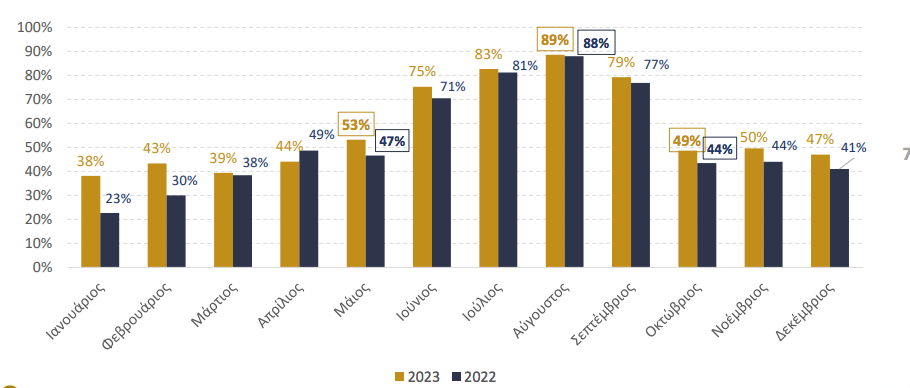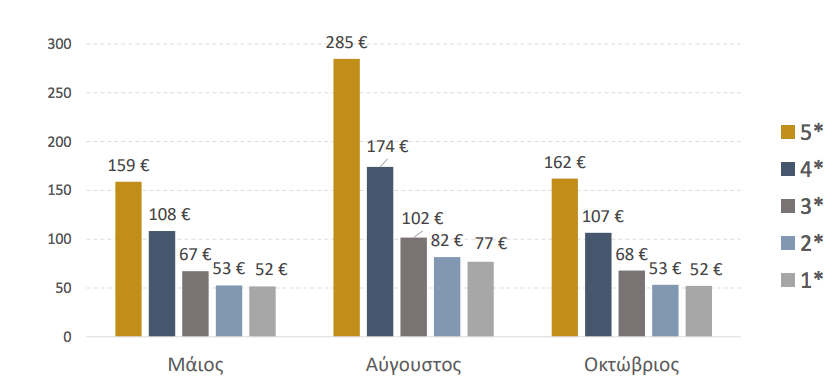The research unveils that in May 2023, the hotel occupancy rate in Greece increased to 53% from 47% in 2022. Similarly, in October 2023, the occupancy rate rose to 49% from 44% in 2022.
The study also highlights the following critical conclusions related to the financial reality of Greek hotels:
- There is a stable pattern in the operational months of seasonal hotels, with an average of 5.7 months in 2023, compared to 5.6 months in 2022.
- There is a noticeable uniformity between hotel categories.
- There is an increase in the average occupancy rate during May and October, indicating the possibility of extending the tourist season. Additionally, during May and October, the average price of a double room increased by around 11% between 2023 and 2022.

There are two important factors to consider.
Firstly, on an annual basis, approximately half of the rooms in Greek hotels are available for a price below 130 euros. Secondly, during the months of May and October, the occupancy rate is mainly higher for larger hotels, while hotels with one or two stars have lower occupancy rates (May: 28% for one-star hotels and 39% for two-star hotels, October: 20% for one-star hotels and 31% for two-star hotels).

The turnover of hotels in 2023 increased by 23% compared to 2022 and reached 10.5 billion euros. This increase is significantly different between hotels with continuous (+9.4%) and seasonal (+27.4%) operation.
Employment increased by 12.6% compared to the previous year and exceeded 208,000 jobs.
The increase in turnover and employment is also linked to investments by hoteliers which for 2023 totaled €761 million (7% of turnover) and fluctuated at the same levels as last year, while 13% of them related to sustainability actions.
Finally, as far as hotel problems are concerned, as recorded in the survey, staffing, energy costs and overall operating costs, reduced occupancy outside of peak months and competition from short-term rental accommodation remain.















